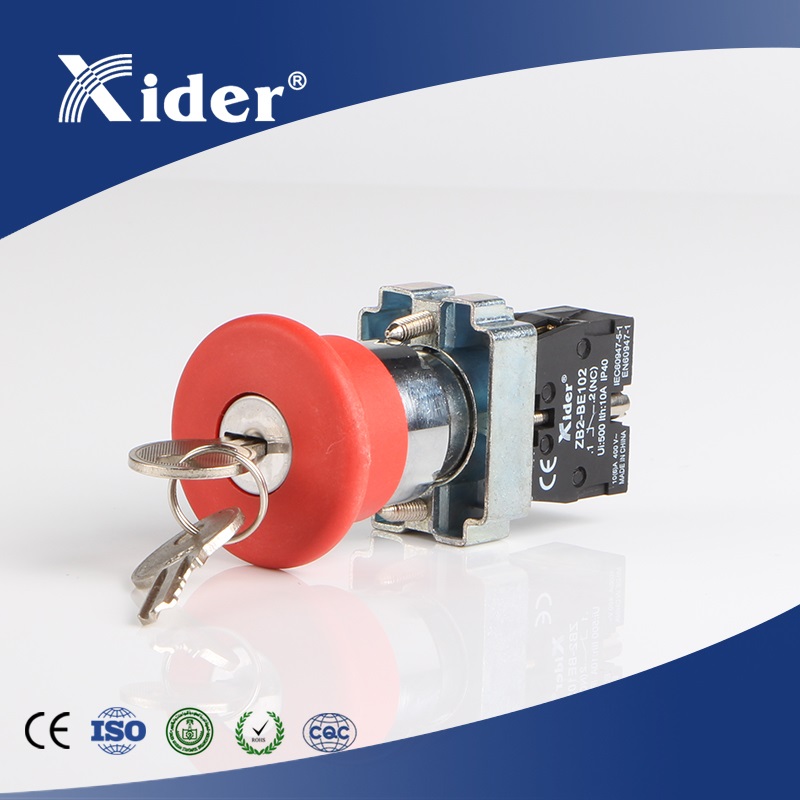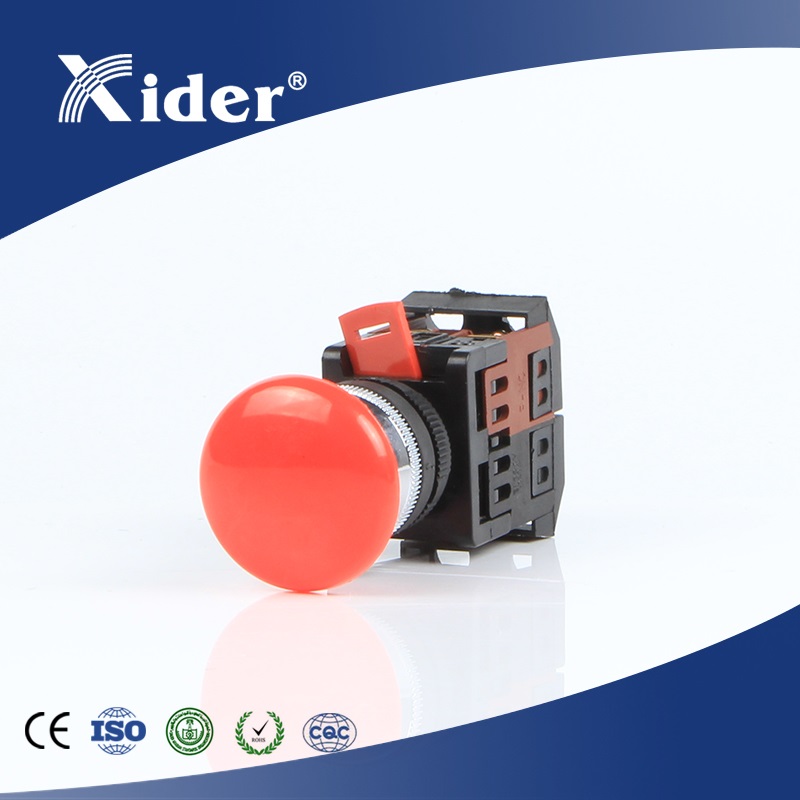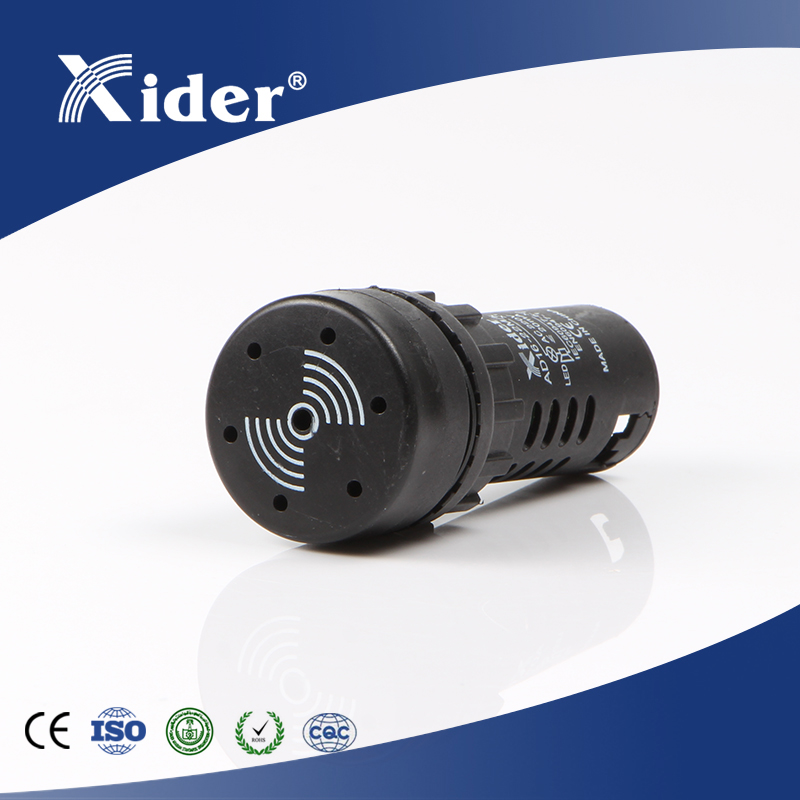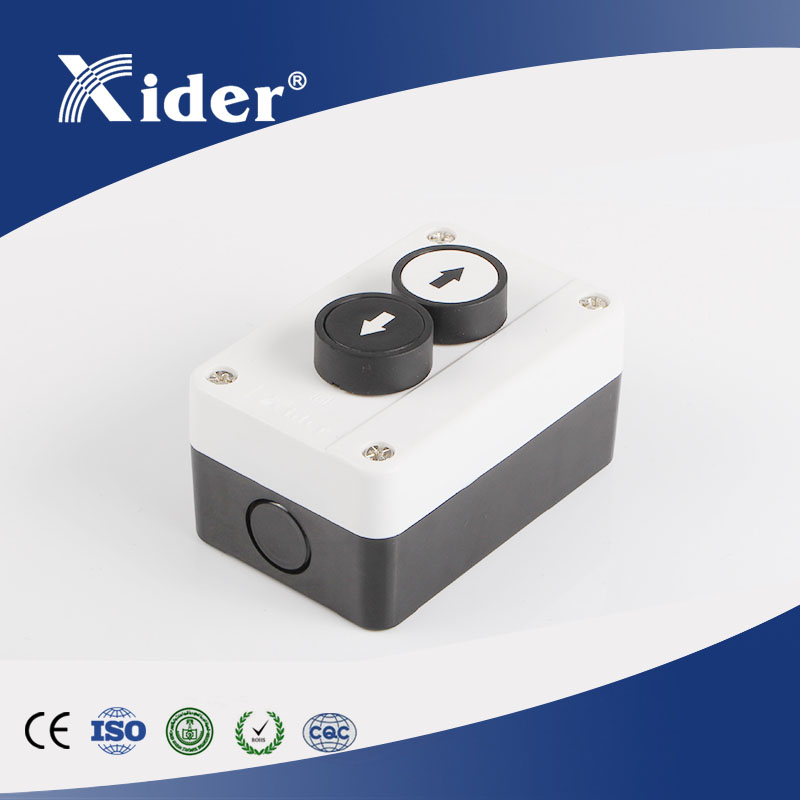When picking a Push Button Switch for industrial use, many users prioritize aspects such as size or waterproofing yet pay little attention to contact material. This component, however, plays a key role in determining how well the switch functions over time. This article addresses common questions about contact materials, explains how they influence performance, and helps you make smarter selection decisions.
What Common Contact Materials Are Used in Push Button Switches?
Push Button Switches depend on specific materials for their contacts, with each type boasting unique properties suited to different needs. The three most widely adopted options include:
Silver alloys: These stand as the top choice for industrial switches. They provide strong electrical conductivity, ensuring smooth current flow—a must for devices that require fast, reliable responses. Silver alloys, though, may undergo oxidation when in contact with moisture or specific gases, which can impair performance in highly humid settings.
Copper alloys: Copper is recognized for good conductivity and a lower cost compared to silver alloys. It works well in applications with moderate current demands, like basic control panels. The main downside is that copper tarnishes more easily than silver, so it may need more frequent inspections in dusty or damp environments.
Gold alloys: Gold offers strong resistance to corrosion and tarnish, making it ideal for low-current or precision applications such as sensitive control systems. It maintains stable performance even in harsh conditions, but its higher price tag means it's less common in general industrial use.
How Does Contact Material Influence Push Button Switch Performance?
The material of a switch's contacts has a direct bearing on three key aspects of its performance:
Electrical conductivity: Materials with better conductivity, like silver alloys, reduce resistance, avoiding overheating and guaranteeing the switch reacts promptly. Poor conductivity can lead to delayed signals or even switch failure in high-current applications.
Durability: Harder materials, such as some silver-copper alloys, hold up better to repeated use. They resist wear caused by frequent opening and closing of the switch, extending the product's lifespan. Softer materials like pure copper may wear out faster in scenarios where the switch is used often.
Environmental adaptability: Corrosion-resistant materials, like gold alloys or coated silver, perform well in humid, dusty, or chemical-exposed areas. Materials lacking this resistance may develop rust or buildup, blocking current flow and causing the switch to work improperly.
How to Pick the Right Contact Material for Your Push Button Switch?
Choosing the correct contact material relies on your specific application needs. Stick to these straightforward tips:
Factor in current demands: For high-current uses, such as heavy-duty machinery operation, go for silver alloys due to their strong conductivity. For low-current applications, such as compact electronic control systems, gold alloys are a more dependable option.
Assess the environment: If the switch will be used in damp, dusty, or chemical-heavy areas—such as food processing facilities or outdoor equipment—prioritize corrosion-resistant materials like gold or coated silver. In dry, clean spaces, such as indoor control rooms, copper alloys can be a cost-effective pick.
Consider usage frequency: For switches pressed hundreds of times daily, such as assembly line controls, opt for durable silver alloys to avoid frequent replacements. For switches used rarely, such as emergency stop buttons that seldom get activated, copper alloys may be sufficient.
Conclusion
Contact material is a vital yet frequently neglected factor in Push Button Switch performance. Whether you need a switch for high-current machinery, precision controls, or harsh environments, grasping the advantages and drawbacks of silver, copper, and gold alloys helps you select the right product.
If you're searching for Push Button Switches with high-quality contact materials that align with your industrial needs, check out our product page. We offer a variety of switches crafted for diverse applications, ensuring reliable performance and long-term durability.






